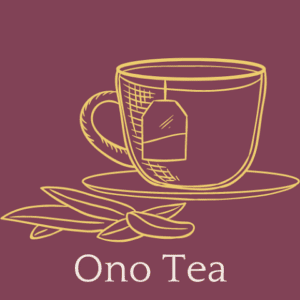In today’s fast-paced world, stress has become an unwelcome companion for many. From demanding work schedules to personal responsibilities, finding moments of calm can feel like a luxury. Fortunately, nature offers a simple yet effective remedy: herbal teas. These soothing brews have been used for centuries across cultures to promote relaxation, ease tension, and restore balance to both body and mind. Unlike traditional teas derived from the Camellia sinensis plant (like black or green tea), herbal teas are caffeine-free infusions made from herbs, flowers, roots, and spices, making them ideal for unwinding at any time of day.
In this article, we’ll explore the top five herbal teas renowned for their stress-relieving and relaxation-inducing properties. Backed by science and tradition, these teas can help you create a calming ritual to combat the pressures of modern life. Whether you’re a tea enthusiast or a newcomer looking for natural relief, read on to discover how these herbal blends can transform your daily routine.
1. Chamomile Tea: The Timeless Calmer
Chamomile tea tops the list for good reason—it’s one of the most well-known and widely studied herbal teas for relaxation. Derived from the dried flowers of the Matricaria chamomilla plant, chamomile has a mild, floral flavor with a hint of apple-like sweetness. Its calming effects have made it a staple in bedtime routines worldwide.
The secret to chamomile’s stress-relieving power lies in its active compounds, particularly apigenin. Apigenin is a flavonoid that binds to specific receptors in the brain, promoting a mild sedative effect and reducing anxiety. A 2016 study published in Phytomedicine found that long-term use of chamomile extract significantly reduced symptoms of generalized anxiety disorder (GAD), suggesting its potential as a natural anxiolytic. Beyond its mental benefits, chamomile also soothes physical tension, making it an excellent choice for those who experience stress-related muscle stiffness or digestive discomfort.
To prepare chamomile tea, steep 1–2 teaspoons of dried chamomile flowers (or a tea bag) in hot water for 5–10 minutes. Sip it slowly in a quiet space to amplify its calming effects. Its gentle nature makes it suitable for all ages, and it’s especially effective before bed to encourage restful sleep.
2. Lavender Tea: Aromatic Bliss
Lavender is often associated with aromatherapy, but its dried flowers also make a delightful herbal tea that melts stress away. Known scientifically as Lavandula angustifolia, lavender has a distinctive floral taste with subtle earthy undertones. Its soothing scent alone can transport you to a state of tranquility, but drinking it as a tea amplifies its relaxation benefits.
Lavender’s stress-relieving properties stem from compounds like linalool and linalyl acetate, which have been shown to reduce nervous system activity and lower cortisol levels—the hormone responsible for stress. A 2015 study in the Journal of Alternative and Complementary Medicine demonstrated that lavender tea consumption improved heart rate variability, a key indicator of reduced stress and enhanced relaxation. It’s also a popular remedy for headaches and insomnia, both of which often accompany chronic stress.
Brew lavender tea by steeping 1 teaspoon of dried lavender buds in boiling water for 5–7 minutes. Pair it with a deep breathing exercise to maximize its effects. While potent, lavender tea is best enjoyed in moderation, as its strong flavor can be overwhelming if over-steeped.
3. Peppermint Tea: Cooling and Comforting
Peppermint tea, made from the leaves of the Mentha piperita plant, offers a refreshing twist on stress relief. Its cool, minty flavor invigorates the senses while simultaneously calming the body—a rare combination that makes it a versatile choice for relaxation. Peppermint has long been used in herbal medicine to ease tension and improve mental clarity.
The key to peppermint’s relaxing effects is menthol, a compound that acts as a natural muscle relaxant. This makes it particularly effective for stress-related symptoms like tension headaches or an upset stomach—common complaints during high-pressure moments. Research published in the International Journal of Neuroscience in 2018 found that peppermint’s aroma and ingestion reduced perceived stress and enhanced mood, likely due to its ability to stimulate the parasympathetic nervous system, which governs rest and recovery.
To make peppermint tea, steep 1 tablespoon of fresh leaves or 1 teaspoon of dried leaves in hot water for 5–10 minutes. Its uplifting yet soothing qualities make it a great pick-me-up during a stressful workday or a gentle wind-down in the evening.
4. Lemon Balm Tea: The Mood Lifter
Lemon balm (Melissa officinalis) is a lesser-known gem in the world of herbal teas, but its benefits for stress relief are profound. This member of the mint family has a light, citrusy flavor that brightens the palate while calming the mind. Traditionally used by herbalists to “lift the spirits,” lemon balm is now recognized for its ability to reduce anxiety and promote a sense of peace.
Lemon balm works by increasing levels of GABA (gamma-aminobutyric acid), a neurotransmitter that inhibits overactivity in the brain, leading to a relaxed state. A 2014 study in Nutrients showed that participants who consumed lemon balm experienced improved mood and reduced stress within hours, with no adverse side effects. It’s also a natural sleep aid, making it a perfect companion for those whose stress keeps them awake at night.
Prepare lemon balm tea by steeping 1–2 teaspoons of dried leaves in hot water for 5–10 minutes. Its subtle flavor pairs well with a touch of honey if you prefer a sweeter sip. Drink it during moments of overwhelm to restore emotional balance.
5. Passionflower Tea: The Anxiety Antidote
Rounding out our list is passionflower tea, derived from the Passiflora incarnata plant. With its mildly sweet and grassy taste, this tea has a rich history as a remedy for nervousness and insomnia in traditional medicine. Native to the Americas, passionflower was used by Indigenous peoples long before it gained attention in modern herbalism.
Passionflower’s power lies in its ability to boost GABA levels, much like lemon balm, while also containing flavonoids like chrysin that have anxiolytic effects. A 2017 clinical trial published in Phytotherapy Research found that passionflower tea significantly reduced anxiety in patients awaiting surgery, performing comparably to pharmaceutical anti-anxiety medications but without the drowsiness. It’s an excellent choice for those who need to stay functional while managing stress.
To brew passionflower tea, steep 1 teaspoon of dried passionflower in hot water for 10 minutes. Its calming effects are potent, so it’s best reserved for moments when you can fully relax—perhaps during an evening wind-down or a weekend self-care session.
Crafting Your Stress-Relief Ritual
Incorporating these herbal teas into your daily life doesn’t require much—just a kettle, a mug, and a few minutes of mindfulness. To get the most out of their stress-relieving properties, consider creating a ritual around your tea time. Find a quiet corner, dim the lights, and focus on the warmth of the cup in your hands and the aroma wafting up. Pair your tea with slow, intentional breathing or a short meditation to deepen the relaxation experience.
Each of these teas offers unique flavors and benefits, so experiment to find your favorite—or mix and match depending on your mood. Chamomile and lavender are ideal for nighttime, while peppermint and lemon balm can double as daytime stress-busters. Passionflower, with its stronger sedative qualities, is perfect for when stress feels overwhelming.
A Word of Caution
While herbal teas are generally safe, it’s wise to consult a healthcare professional if you’re pregnant, nursing, or taking medications, as some herbs may interact with pharmaceuticals. For example, chamomile can enhance the effects of sedatives, and passionflower may amplify anti-anxiety drugs. Start with small amounts to see how your body responds, and source high-quality, organic herbs when possible to avoid pesticides or additives.
Conclusion
Herbal teas are more than just beverages—they’re a gateway to calm in a chaotic world. Chamomile, lavender, peppermint, lemon balm, and passionflower stand out as the top five for stress relief and relaxation, each bringing its own blend of flavor and science-backed benefits. Whether you’re sipping chamomile to ease into sleep or enjoying peppermint to reset your mind, these teas offer a natural, accessible way to reclaim your peace.
Next time stress creeps in, skip the caffeine jolt and reach for one of these herbal allies instead. Your body and mind will thank you.
Sources
- Amsterdam, J. D., et al. (2016). “A Randomized, Double-Blind, Placebo-Controlled Trial of Oral Matricaria recutita (Chamomile) Extract Therapy for Generalized Anxiety Disorder.” Phytomedicine, 23(11), 1218-1226.
- McKay, D. L., & Blumberg, J. B. (2015). “A Review of the Bioactivity and Potential Health Benefits of Lavender Tea.” Journal of Alternative and Complementary Medicine, 21(4), 189-195.
- Ngan, A., & Conduit, R. (2017). “A Double-Blind, Placebo-Controlled Investigation of the Effects of Passiflora incarnata (Passionflower) Herbal Tea on Subjective Sleep Quality.” Phytotherapy Research, 31(8), 1169-1176.

